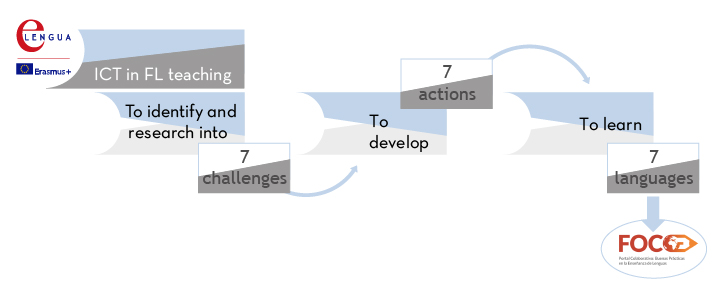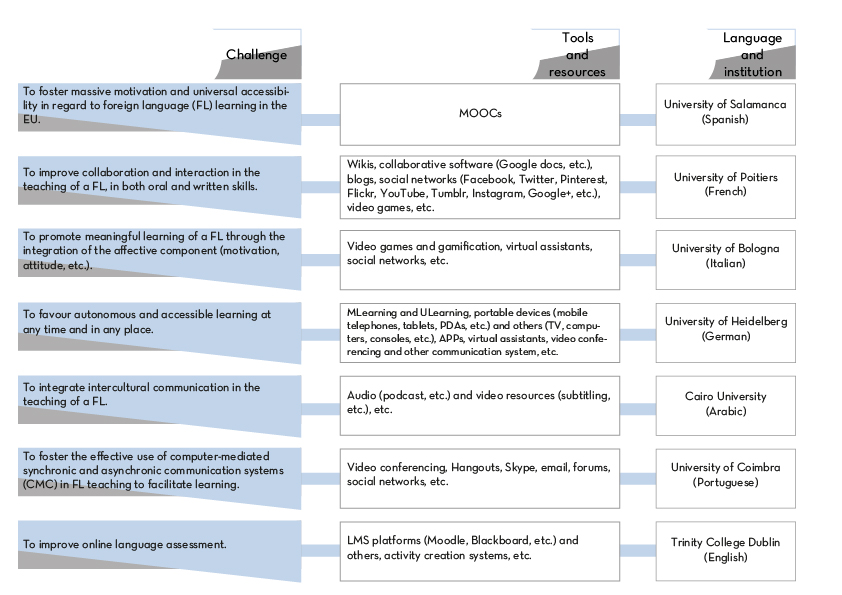E-LENGUA (E-Learning Novelties towards the Goal of a Universal Acquisition of Foreign and Second Languages) is a European Erasmus+ Project led by the University of Salamanca (Spain) in collaboration with other international Universities: the University of Coimbra (Portugal), the University of Poitiers (France), the University of Heidelberg (Germany), the University of Bologna (Italy), Cairo University (Egypt) and the Trinity College Dublin (Ireland).
The Project is intended to promote and support the development of common lines of action with a view to achieving the integration of digital competencies in the curricular design of foreign language teaching in Europe in a synergic way.
Through 7 actions, the consortium will seek solutions to 7 challenges posed by the use of technology as an educational tool in foreign language teaching (English, Arabic, Spanish, French, German, Italian and Portuguese). The results will be included in FOCO, an open-access Repository of Best Practices in foreign language teaching using ICT. E-LENGUA Project will benefit users of different ages and backgrounds: language teaching professionals, researchers in applied linguistics and foreign language students.
More about our intellectual outputs here.
Objetives of the project:
The general objectives of E-LENGUA can be established on three levels -institutional, teaching, and learning- and they are as follows:
General Objectives:
G01.To contribute to the reinforcement of cooperation among European institutions of higher education through the exchange of best practices with a view to achieving the integration of digital competencies in the curricular design of foreign language teaching.
G02.To draw up teaching proposals that respond to the educational needs of the European context -intercultural and multilingual- and that present possible solutions to the challenges posed by the applications of ICT in the teaching of foreign languages.
G03. To implement the development of cross-sectional knowledge, skills and attitudes related to the digital competencies integrated into foreign language-learning in Europe, paying special attention to people with special needs from the different countries included in the project (e.g. persons who are blind or deaf).
Some specific objectives correspond to these general objectives and are presented below:
Specific Objectives:
S01. To confront the challenges posed by the application of ICT in the teaching of foreign languages in the following contexts:
SO1.1. Accessibility to educational resources;
SO1.2. Development of teaching methodologies focused on learners needs, particularly when these needs are special (interaction among learners and communication with teachers);
SO1.3. Creation of personalized learning environments (attention to affective factors and intercultural communication);
SO1.4. Implementation of effective assessment systems.
S02.To propose solutions to the problems detected by developing -through specific instruments- resources that can be applied to the specific cases of some of the most spoken languages in Europe.
S03. To draw up a catalogue of best practices for the integration of ICT into language teaching which can be applied to other educational contexts.
More about the project’s objetives and outcomes in this presentation.






